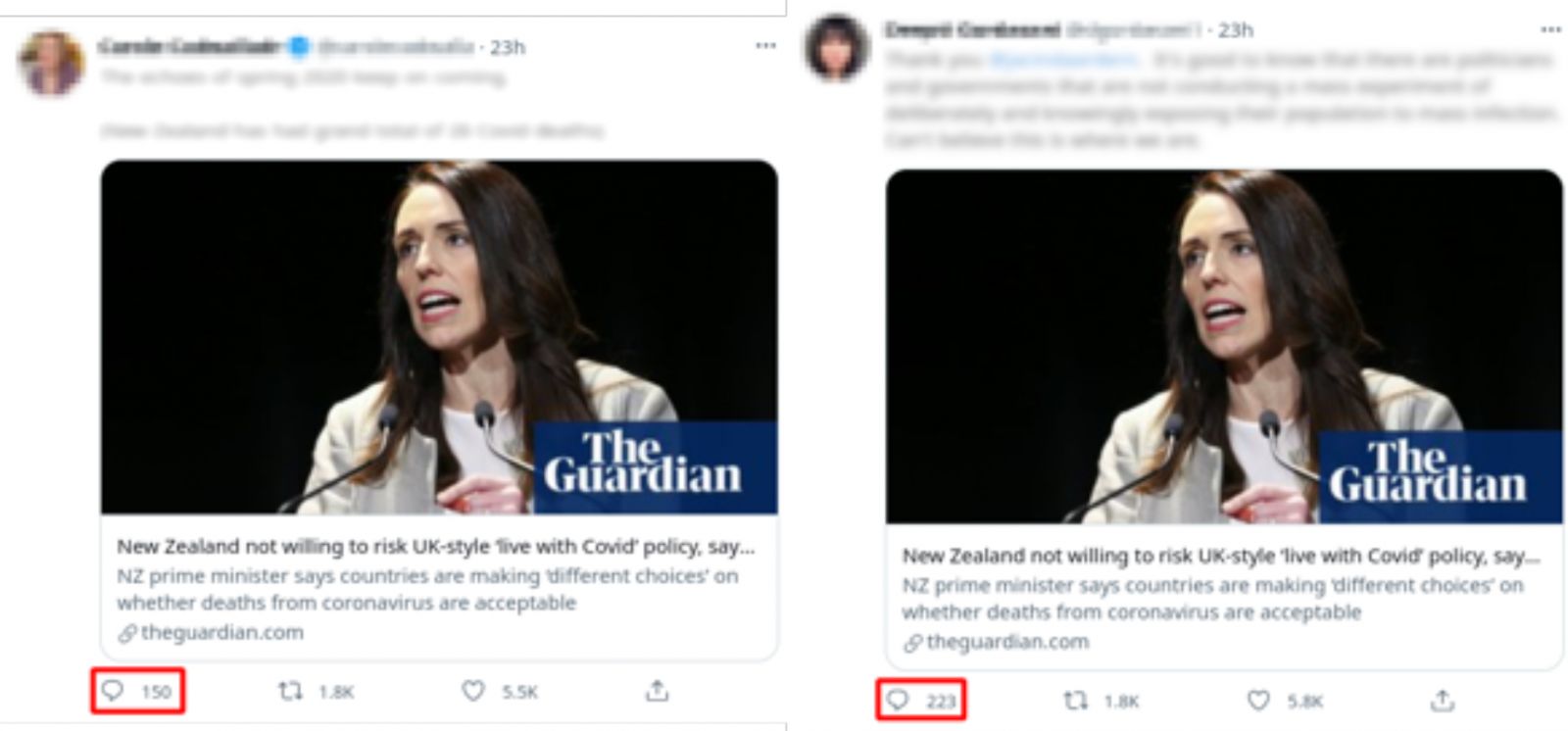A Content-Based Approach for Detecting Echo Chambers in Online Social Networks
Online social networks are an integral part of modern society: they connect millions of users from around the world. For many people they serve as their main news aggregators and a window of what is happening in the world. Despite intensive research, many phenomena revolving around online social networks and their impact on society are still not sufficiently understood. One of the main challenges in this area is to establish whether echo chambers are widely present in social networks or not.
An echo chamber refers to a group of people who have the same opinions and reinforce their respective ideas without rebuttal from an opposing side [1]. Since it is believed that echo chambers play an important role in the online-radicalization of users, understanding whether echo chambers exist is an important question.
In our work, we introduce a new method for detecting echo chambers in online social networks. While previous approaches have mostly focussed on interactions between different users, our work also takes into account the contents associated to user interactions.
More concretely, consider the content given by a newspaper article. Our approach is to find all discussions about this article on online social networks, such as Twitter, and to download the corresponding (discussion) threads. While most newspaper articles will trigger only a small number of interactions between the users, controversial articles will trigger a heated discussion with lots of friendly and hostile interactions. In Figure 1 we present an example of two threads that discuss the same newspaper article and trigger many user interactions.

Figure 1:Two threads on Twitter discussing a newspaper article. Both discussions give rise to a thread and both are about the same content
(an article from The Guardian about New Zealand)
Therefore, our approach is to study the user interactions triggered by controversial newspaper articles. Our observation is that inside echo chambers, where beliefs are reinforced and where there is no rebuttal from outside, even controversial articles do not trigger hostile interactions. This suggests that if we can find local groups of users who agree on an article, even though that article is highly debated in the entire social network, then we can detect echo chambers.
As an example, consider the topic of politics in news media, which is known for being controversial [2]. Many articles about politics trigger a discussion between parties of opposing viewpoints, causing positive and negative interactions throughout the whole network. However, if a certain group of users discusses such controversial articles with mostly friendly interactions, then it is likely that all users in this group have a similar political stance and that they reinforce their opinions. Hence, such a group of users would constitute an echo chamber.
In our work we present a mathematical model for the problem of detecting content-based echo chambers. We then derive an integer linear program, which solves our problem exactly but does not scale to large datasets. To make our approach more scalable, we consider a relaxation of the integer linear program and use rounding heuristics to turn fractional solutions into integer-valued solutions. We also study the computational complexity of our problem and provide inapproximability results.
We evaluate our method on synthetic and on real-world data. On the synthetic data, our results show that our algorithm is able to reconstruct a set of planted echo chambers. We also run our heuristic algorithm on real-world data retrieved from Twitter and Reddit and observe that it finds subgraphs that match with our definition of content-based echo chambers.
Written by: Francesco Zappia
References
[1] K. Garimella, G. D. F. Morales, A. Gionis, and M. Mathioudakis, “Quantifying controversy on social media,” ACM Trans. Soc. Comput., vol. 1, no. 1, pp. 3:1–3:27, 2018. doi: 10.1145/3140565
[2] M. Conover, J. Ratkiewicz, M. Francisco, B. Gonçalves, F. Menczer, and A. Flammini, “Political polarization on twitter,” in AAAI, vol. 5, no. 1, 2011.

